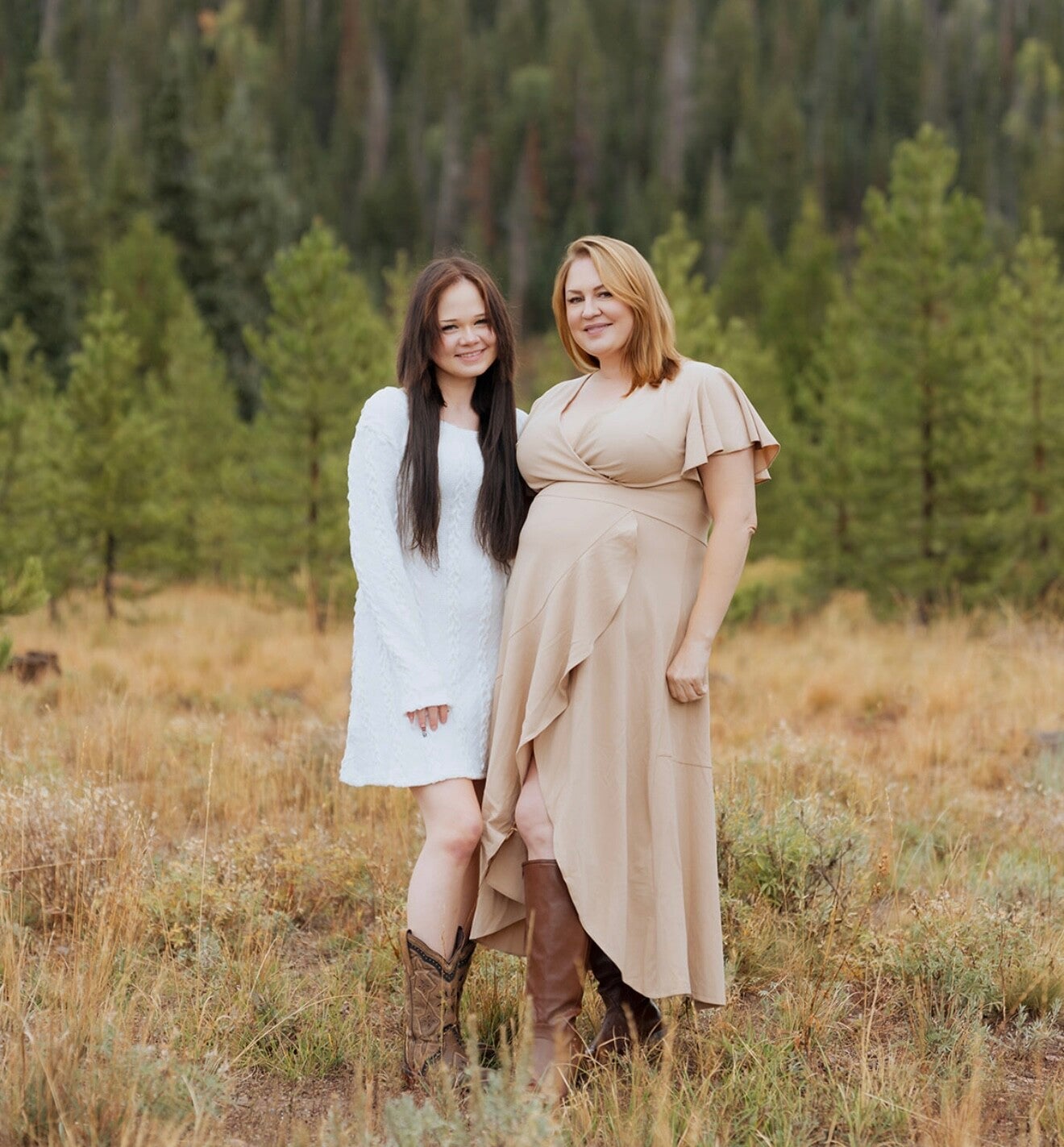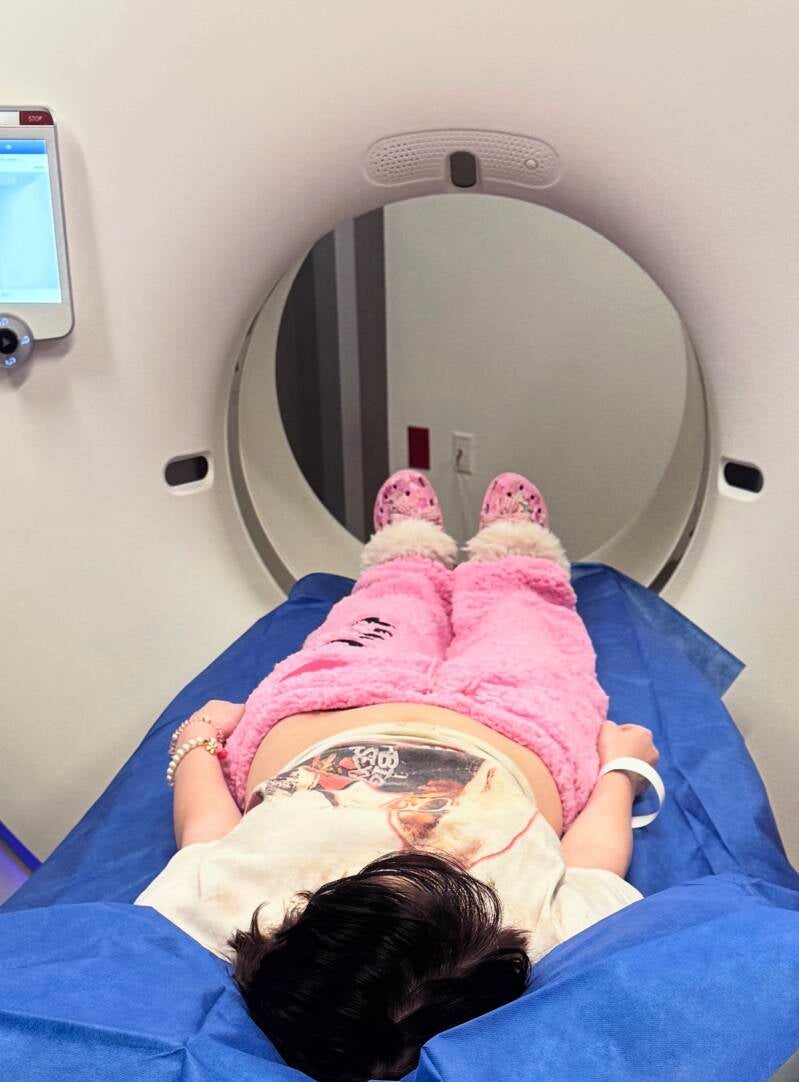A Mother's Heart
Welcome to a space where I share my raw thoughts and emotions as I stand with my daughter while she battles cancer. This is my jouney of finding unknown strength and unwavering hope. Join me as I process our experiences – if you are a parent facing similar challenges, know that here you are heard, and you are seen.

The Road to Miracles
Every parent knows the feeling, the one where something is not quite right. It's the "my kids are not ok" radar. When something is going on with my children, I feel it in my soul, even if I don't always know why.
I am a single parent to three children. Rose is my middle daughter, my most outgoing, social, and energetic child. She is the one most likely to give me attitude but the first one to help cook dinner or do chores. She has a sixth sense for when I might be driving by a Target or a Starbucks and never fails to send a hopeful text with her order. I've cheered on her dance recitals and cheerleading routines, hosted endless sleepovers, and funded her numerous fashion aspirations. She wakes up in the morning and pours into life like a dam breaking, rushing forward without restraint, so full of plans and dreams and desires. Because of this, Rose is my child most likely to end up in the emergency room, her need to BE and DO eclipsing any built-in safety awareness she might have. Of all my kids, I have spent more sleepless nights over Rose than my other two children combined.
Just after school ended in June of 2025, Rose seemed to wind down. She was tired all the time. She ate less. She didn't want to hang out with friends. At first I thought she might be in the Sleepy Stage of teenage life, where teenagers just don't function before noon. I thought I would give her space and let her rest. Then she started getting sick. Of course, I thought, she's just sleeping off a virus.
"A summer flu," I told her.
But I started sleeping light. I was working 60+ hours a week, trying to juggle my work life and my parenting life. I came home exhausted every night, but I wasn't able to sleep. I would fall into bed and toss and turn. My mind wandered – what if it wasn't the flu? Were my children eating enough healthy food? Maybe they were skipping my premade meals and were eating junk when I was at work, leaving them clinically malnourished. Was our home clean enough? Maybe it was germs. Maybe there was mold or mildew lurking in our walls, causing untold issues. Maybe, maybe, maybe. And then I would tell myself – maybe it is just the flu.
When Rose stated throwing up blood, I took her to the ER. "Something isn't right," I told the nurses. "Something has gone wrong somewhere."
I felt a genuine wave of relief when they admitted Rose that night. I'd brought my precious daughter to this experienced team of highly qualified professionals, and now they were going to figure out what was wrong and they were going to fix it. I didn't have to worry anymore; the hospital staff were going to worry for me, and all I had to do was hold Rose's hand and sign consent forms. I truly thought we would go home with a prescription that would solve everything.
It didn't. When one problem was solved, another problem would arise. Rose was in and out of the emergency room for months, each time for something different. Trouble breathing. Intense pain in her abdomen. Vomiting after every meal, even after taking the zofran she'd been prescribed in June. Her symptoms snowballed into what Rose would describe as a Bad Day. A Bad Day meant she was dizzy, tired, out of breath, and nauseated. Eventually Rose stopped complaining about her symptoms and would just say, "I need to go to the hospital now" and she would go wait in the car. I would grab my bag and car keys and go, no need to question her.
In October, while hospitalized for pancreatitis, Rose had a CAT scan. The diagnosis and corresponding images were sent to my phone while she was in abdominal surgery, so I knew before she did.
Stage 3 carcinoma. Cancer.
What?
How could this happen? Why did this happen? I demanded answers from Rose's medical team.
"It's very rare," they told me. "This isn't something we normally see in a sixteen year old. There is no how or why. Sometimes these things happen."
There was a brief moment, after the initial shock, when I became completely untethered from reality. Maybe they are all wrong. Do doctors really know what they're doing? Does anyone in this hospital actually have a clue?
I am ashamed to even write this now, because I know Rose has a very competent team of doctors who are doing everything they can to help her. I know they are fighting for her. But I hoped against hope that they were wrong.
When Rose woke up from surgery, I told her, "it's probably nothing, but you have a tumor in your lung." I failed to prepare her for the reality of her situation because I myself could not grasp it.
They did more tests. We met with more specialists. I was optimistic through it all. It wasn't until I got a call from Rose's doctor, on a Saturday evening, telling me the cold hard truth: "Rose will need to start chemotherapy, and she'll need to do it immediately." She was being referred to the Oncology department of a hospital four hours away.
I cried.
And now this is the road we are going down, all of us unwilling passengers, our midnight prayers for healing unanswered, my desperate attempts to find solace in logic and reasoning futile, ushered by fate to a destination undesired.
I am filled with the overwhelming grief that comes from knowing the difficulties that lay ahead for my daughter, hand-in-hand with my love for Rose and my faith in medical interventions. That the heart can hold dispair and grief and hope and faith all at once is a miracle, and I pray that it is not the only miracle we find in the midst of this journey.

The New Reality
"Rose has cancer," I tell my friends and family, but it's not a statement. It's a question, my voice raising slightly at the end of the sentence, as if asking my listeners to tell me I'm wrong. Say it's not real, I beg them silently. But they don't. Their faces fall, their words are soft, they tell me they will pray. It is real, and they are simultaneously grateful that it's not their child and sympathetic for our struggles. They are as encouraging as they can be, watching from the outside, horrified as Rose's world is thrown into chaos.
"Rose definitely has cancer," her doctor says, repeating it every so often as if to remind us that it's true. She is firm yet cheerful; as an oncologist, she's done this before. She is armed with facts and statistics. She's not worried because she has a plan A, B, and C. She's calm and collected. We talk often now, sometimes two or three times in a day. Rose and I will see her regularly for the next year. It makes me feel better, knowing there's an adult in Rose's world who knows what they're doing. But I also wonder, Do I plan her funeral or her graduation? Am I crazy to be worried? I can't tell.
"Rose has caaaaaancer" her friends say, all these sixteen year olds using this word like they know what it means. They're going to send her presents, they're going to shave their heads in solidarity if she goes bald, they're going to send her regular snapchats of all the things she's missing in school, they won't have fun without her, they promise. They bounce around the FaceTime screen, each wishing her well with all their youthful energy, pushing each other out of the frame so they can see Rose and talking over each other in their excitement. I'm glad for this, their wide-eyed and enthusiastic support. "Do you think I'll look good bald?" Rose asks her best friend, Lilly. "Obvioussssly, Queen," Lilly tells her, "You'll slayyyyy!"
"I have cancer," Rose says, sometimes to me, sometimes to her friends. We all know her diagnosis by now, and she knows we know. She's feeling out the word, familiar in the concept but strange in her own reality. She's trying to make sense of it. Sometimes she sits criss-cross applesauce in front of her bedroom mirror and stares at her reflection, whispering "I have cancer" to the empty room. It's her way of being brave, of telling herself she needs to endure the discomfort she has been told is coming. She is mentally preparing herself for chemotherapy, another word she knows but really doesn't understand.
Until now, cancer has meant something scary that happens to other people. Something terrible and sad, but something you can forget, a word you can pull from far away when you need to think of it and push out of your mind when you don't.
For Rose, and for me, cancer means something different today. It means we need to fight, we need to endure the battle without giving up, it means we need to let the doctors lead the way and follow the treatment schedule if Rose wants to live. It means chemotherapy and IV ports, it means we let the chemicals break down every part of Rose in their valiant attempt to eradicate unhealthy cells. It means our lives have changed, and it means we are all buckling down for the hard choices ahead. But every day that we have a choice, we will choose life.

